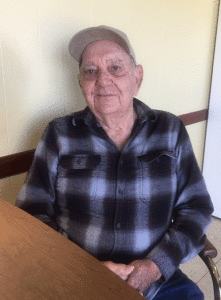
Ted Gill
Meet Ted Gill
This little article is the first in the Seadrift Legacy series. Each story will feature someone or some family who has made an impact and left a legacy in our community. This first story is about Ted Gill’s involvement with the City and how he left an impact on us all! This article is dedicated to Ted’s beloved wife, Bootsie, who recently passed.
Ted and Bootsie moved to Seadrift in 1960. The same day they came, Ted started to work for Union Carbide. In 1968 Ted became Mayor of Seadrift and was handed the keys to an old grain truck with high sides on it. That truck was the City’s first garbage truck! Durell Gaines and Henry Bennetson were the City’s first solid waste employees.
As mayor, Ted finished the City’s gray water sewer system. Ted went to A&M to learn how to operate the system and taught two employees how to operate it. Ted, also, got the first state water treatment license. Three times Ted went before the Golden Crescent Regional Planning Commission. Each time he won $250,000 grants for the city!
Ted and the City Council introduced the first Seadrift ambulance to the city. It was a Cadillac hearse! Ted ended up serving six years as Seadrift Mayor (starting in 1968), eight years as a Seadrift Council member (’87-’91), and again as City Councilman (2000 – 2007). While Ted was on the City Council the City purchased the current City Hall and civic center. Also, as a City councilman, Ted worked to receive a grant for the Seadrift harbor. Ted, Bootsie, George Miller, and Pat Kennedy traveled to Washington, D.C. to receive the grant from the Department of Health and Human Resources.
On January 1, 1992 Ted Gill retired from Union Carbide after 32 years. Also, Ted is a 51 years Endowed Master Mason at the Seadrift Masonic Lodge.
Ted has this to say to our younger generation: “As you look forward to meeting your goals and your visions, don’t forget your history. Without the knowledge of our heritage, who are we?”
